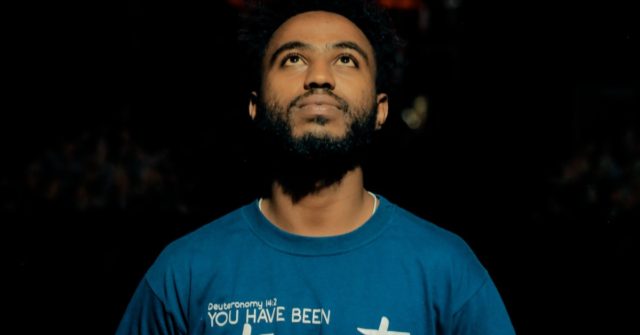
ROME — Several Christian groups and religious leaders have expressed concerns that sweeping government actions to combat the spread of coronavirus endanger religious liberty.
“When the world deals with a crisis such as this — the coronavirus pandemic — religious freedom is often affected first, especially in countries that are closed off to Christianity,” said Dede Laugesen, Executive Director of Save the Persecuted Christians (STPC), in an article published Tuesday.
“Situations like these also create opportunities for persecutors to exploit the crisis and operate with a greater sense of impunity,” Ms. Laugesen noted. “Therefore, it remains imperative for believers who do enjoy religious liberties to continue to pray for our brothers and sisters in Christ who are at risk of anti-Christian violence.”
For its part, the U.S. Commission on International Religious Freedom (USCIRF) released a new fact sheet this week outlining some of the effects of the coronavirus outbreak on religious liberty worldwide.
Since the outbreak of COVID-19, governments have been implementing various public health interventions to control the spread of the illness, including “large public programs, restrictions on freedom of movement, and government management of critical resources,” USCIRF noted.
“It is important for governments to account for religious freedom concerns in their responses to COVID-19, for reasons of both legality and policy effectiveness,” USCIRF declares. “From a legal perspective, international law requires governments to preserve individual human rights, including religious freedom, when taking measures to protect public health even in times of crisis.”
The USCIRF report looks at countries like China, South Korea, Iran, and Saudi Arabia, underscoring examples of “how public health emergencies can increase the risk to marginalized religious groups.”
But among this group is also Italy, which has enacted strict and binding regulations affecting freedom of movement and activity.
In an article posted Tuesday, Italian journalist Andrea Gagliarducci asks why freedom of worship is not among the compelling reasons for leaving one’s home and why the Church has not insisted on this.
The Italian state has spelled out with precision what does and does not constitute a valid reason for leaving one’s residence, but caring for one’s spiritual health by praying in church or accessing the sacraments does not figure among them.
The underlying problem is not just an overreaching state anxious to deprive believers of their rights, but the ready acquiescence of the Church to such overreach, Gagliarducci suggests.
“The problem is that, while in an emergency, the Church is not thinking about defending what she has to defend: freedom of worship,” he writes.
“The Italian case is a good example. The lockdown in Italy is very strict. One cannot move without compelling reasons,” he notes. “However, there is no mention of worship among the compelling reasons,” he continues, despite the fact that the right to worship “is a fundamental right of the Italian constitution.”
“So, what does a faithful do if he needs to go to confession? What does a priest do if he has to go and give the anointment of the sick?” he wonders aloud. “If the police asks, one can say it is a compelling necessity. Since, however, the worship is not contemplated in the law, a prickly officer could even fine the priest or arrest him.”
In the end, Gagliarducci insists, the Church has missed an opportunity to insist on the importance of religious freedom, even in a time of a health crisis.
“The Church should have vehemently objected to the government bill that did not contemplate worship issues,” he writes. “This bill creates a precedent. If one day, the Italian State will want to deny the freedom of worship, it will be easy to remember the precedent on this particular situation.”
In a recent open letter, Cardinal Raymond Burke, a renowned canon lawyer the former head of the Vatican’s supreme court, makes a similar case, observing that the state makes a critical distinction between what it considers to be “essential” activities,” such as buying food and medicine, and “optional” activities, such as watching a movie or an athletic competition.
During a health crisis such as that of the coronavirus, essential activities are allowed whereas optional activities are suspended.
In his letter, the cardinal argues that it is a mistake to yield to the misunderstanding that spiritual goods are less important than physical goods and to suggest that churches are more like cinemas and sports stadiums than grocery stores and pharmacies.
“In considering what is needed to live, we must not forget that our first consideration is our relationship with God,” the cardinal writes. “That is why it is essential for us, at all times and above all in times of crisis, to have access to our churches and chapels, to the Sacraments, and to public devotions and prayers.”
“Just as we are able to purchase food and medicine, while taking care not to spread the coronavirus in the process, so also we must be able to pray in our churches and chapels, receive the Sacraments, and engage in acts of public prayer and devotion,” he contends. “Without the help of God, we are indeed lost.”
via Breitbart News
Enjoy this article? Read the full version at the authors website: https://www.breitbart.com
